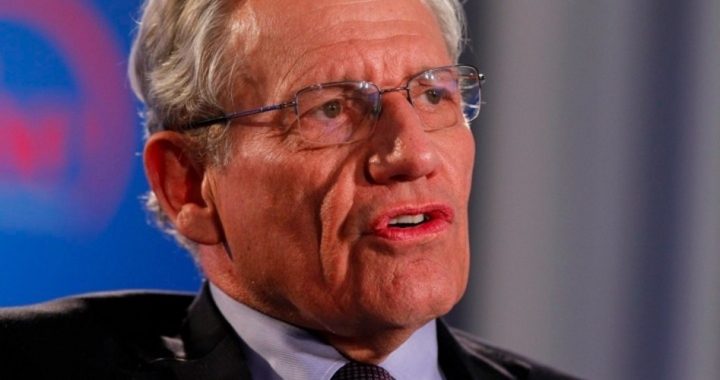
Washington Post columnist Bob Woodward, famed for helping break the Watergate story over 30 years ago, has been taking heat the past couple of days for his claims that the White House threatened him for questioning President Obama’s version of how the deep federal spending cuts, now known as sequestration, came about.
According to Politico.com, last week Woodward told a senior White House official that his weekend Washington Post column would challenge Obama’s insistence that the sequestration crisis was a result of Republican lawmakers’ unwillingness to compromise on spending cuts and tax increases. Both in his 2012 book, The Price of Politics, and in subsequent columns, Woodward has pointed out that the sequestration strategy was devised by the Obama administration and approved by the president.
That call to the White House official, now identified as economic aide Gene Sperling, turned into a tirade against Woodward, with Sperling allegedly yelling at Woodward “for about a half-hour,” Woodward told Mike Allen and Jim Vandehei, who write the “Behind the Curtain” column at Politico.com.
Woodward told the Politico team that the verbal attack was followed by an e-mail in which Sperling wrote: “I apologize for raising my voice in our conversation today. You’re focusing on a few specific trees that give a very wrong impression of the forest. But perhaps we will just not see eye to eye here.” Sperling then told Woodward that “I think you will regret staking out that claim.”
While Woodward said that he never felt personally threatened by Sperling’s statement, he insisted that it was nonetheless significant. “Come on!” Woodward told Allen and Vandehei. “I think if Obama himself saw the way they’re dealing with some of this, he would say, ‘Whoa, we don’t tell any reporter ‘you’re going to regret challenging us.’”
The veteran Beltway journalist said White House officials “have to be willing to live in the world where they’re challenged. I’ve tangled with lots of these people. But suppose there’s a young reporter who’s only had a couple of years — or 10 years’ — experience and the White House is sending him an email saying, ‘You’re going to regret this.’ … I don’t think it’s the way to operate.”
Following Woodward’s comments a White House official insisted that “no threat was intended,” by the e-mail. “As Mr. Woodward noted,” the official continued, “the email from the aide was sent to apologize for voices being raised in their previous conversation. The note suggested that Mr. Woodward would regret the observation.”
White House press secretary Jay Carney later told reporters that “you cannot read those e-mails and come away with the impression that Gene was threatening anybody.” Nonetheless, Carney said the White House has “enormous respect for the work that Bob Woodward is famous for” and insisted that the latest exchange was merely over a “factual disagreement.”
As for Woodward’s insistence that sequestration was a planned White House strategy, Carney said that “the President from day one has been absolutely clear that in dealing with deficit reduction going forward and in replacing and eliminating the sequester, he believes we had to have balance. You’d have to have your head … in the sand not to know that. Everybody here has reported it ad nauseam. So I think that’s the fact that Gene was concerned with.”
As have other commentators, Woodward has questioned Obama’s motivation in using the sequestration “crisis” as justification for huge military cuts that many experts warn will compromise America’s defense. During an interview on MSNBC interview Woodward called the move “madness,” noting that “under the Constitution, the President is commander-in-chief and employs the force. And so we now have the President going out because of this piece of paper and this agreement [saying] ‘I can’t do what I need to do to protect the country.’ That’s a kind of madness that I haven’t seen in a long time.”
While the incident has garnered Woodward some positive book-selling publicity on a series of talk shows, his e-mail response to Sperling appears to be at odds with the columnist’s supposed concern over a veiled threat. After Sperling’s e-mail — which closed with a gushing apology “for raising my voice on the call with you. Feel bad about that and truly apologize” — Woodward responded in kind: “Gene, you do not ever have to apologize to me. You get wound up because you are making your points and you believe them. This is all part of a serious discussion. I for one welcome a little heat; there should more given the importance. I also welcome your personal advice. I am listening. I know you lived all this. My partial advantage is that I talked extensively with all involved.”
Woodward subsequently insisted to his own Washington Post that while he was alarmed by the implications behind Sperling’s use of the word “regret,” he himself had never said Sperling’s words were threatening. “I never characterized it as a ‘threat,’ ” the Post quoted Woodward as saying. “I think that was Politico’s word. I said I think [Sperling’s] language is unfortunate, and I don’t think it’s the way to operate. . . . [Sperling’s] language speaks for itself. I don’t think that’s the way to operate.”
And in a CNN interview, Woodward appeared to massage the incident further, refraining from using the word “threat” but saying that the White House has “the power. When someone says ‘you’ll regret something,’ they can use their power any way they want. It’s a tone question…. I’ve been dealing with White House people going back to the Nixon years. They called us every name in the book. [This] just strikes me as not a way to deal with this. It makes me uncomfortable.” Still, however, not a “threat,” insisted Woodward.
On MSNBC’s Morning Joe program, David Axelrod challenged Woodward, noting that “when the full e-mails came out, they were as cordial as can be. [Sperling’s] e-mail was cordial, and your response was cordial. So if you felt threatened, why didn’t you say to Gene, ‘Don’t threaten me’?” Woodward quickly responded that “you are putting words in my mouth,” insisting that he never implied he felt threatened. “I said, ‘I don’t think this is the way to operate.’” To which Axelrod retorted: “I’m not putting words in your mouth, Bob. It’s your newspaper that said you said you were threatened.”
Weighing in on the incident, some liberal media outlets took potshots at Woodward for turning his personal exchange with Sperling into a news show opportunity. Writing on HuffingtonPost.com, columnist Jason Linkins wondered: “When Bob Woodward reads emails from the White House, do the words in his head sound like they’re being spoken aloud by Edward G. Robinson in the Bugs Bunny cartoons?”
And over at Slate.com, columnist David Weigel wrote that the only relevant part of the story was Woodward’s undue concern that the type of backlash he got from Sperling might scare off a less seasoned journalist. But as with other journalists, what Woodward experienced “happens all the time” in the bare-knuckle world of Beltway journalism,” Weigel noted. “If you’re not sparring with sources to make sure you understand their side of an argument, you’re doing it wrong.”
Photo of Bob Woodward: AP Images



